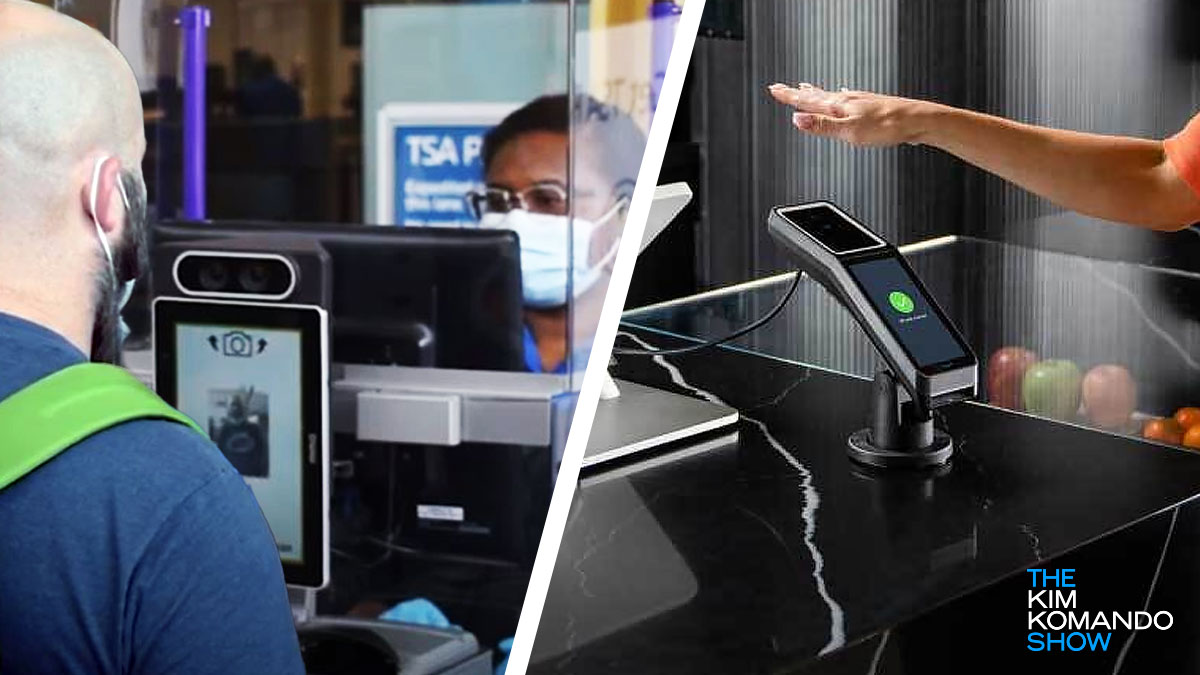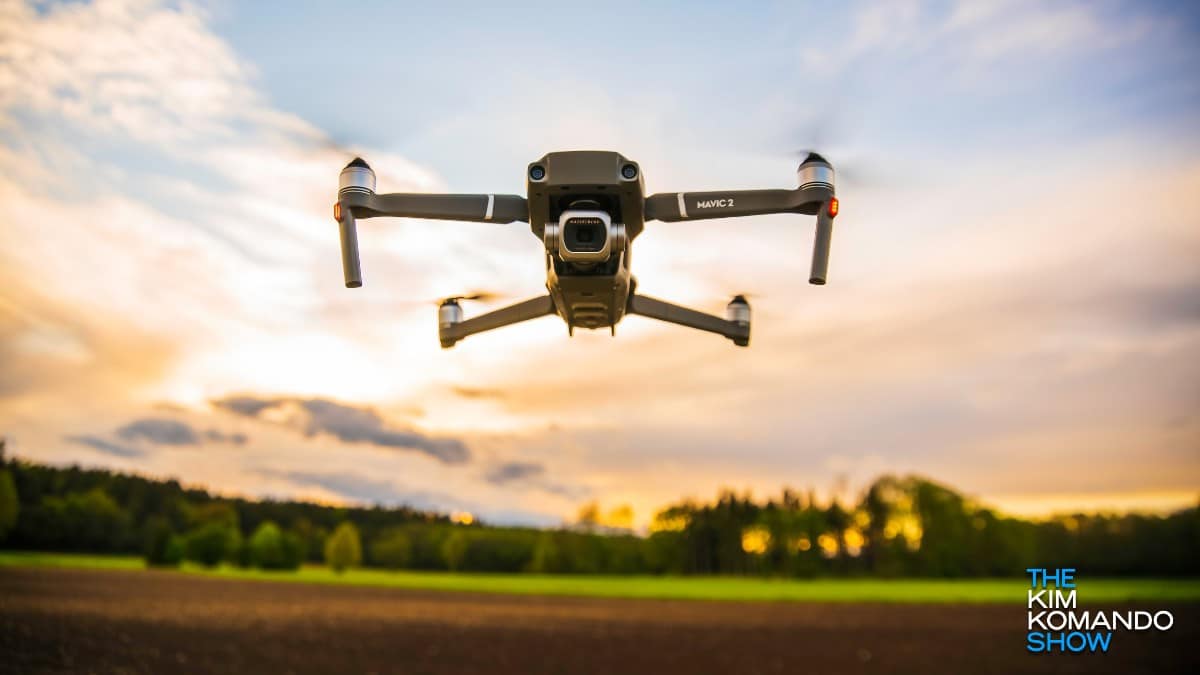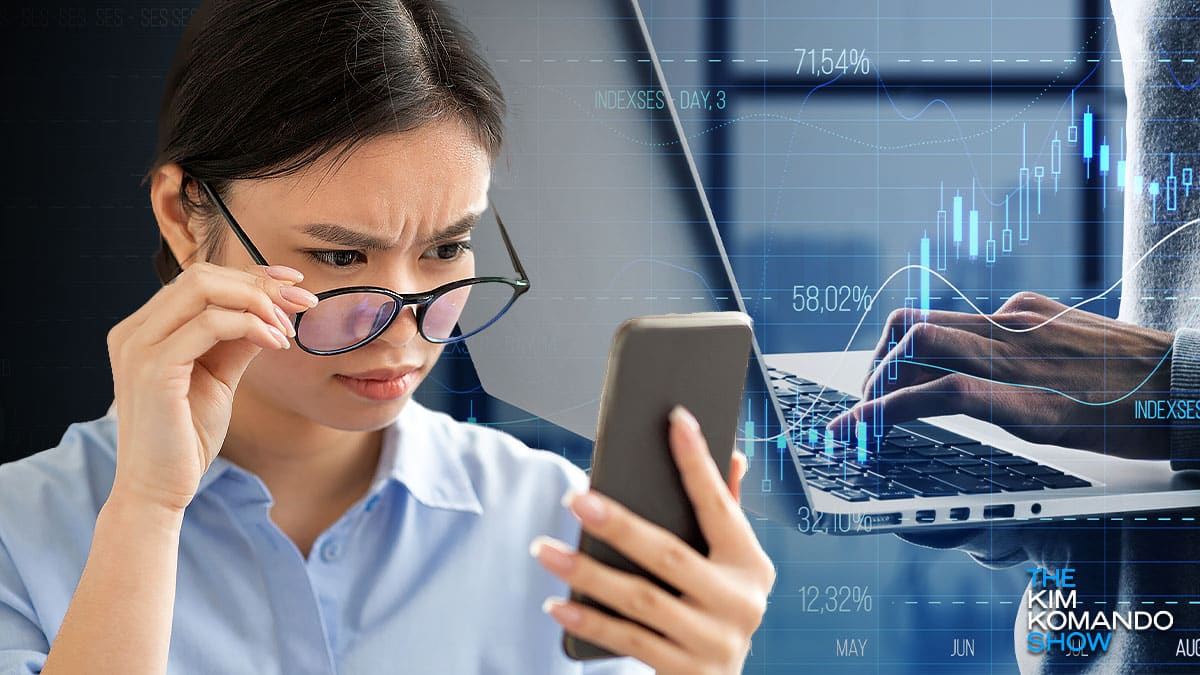🚨 Etsy sellers, watch out: A new scam starts with an email from “support” and a PDF invoice hosted on a legit domain: etsystatic.com. The goal is to get you to fill out fake identity verification requests on a cloned Etsy site. Official Etsy emails always end with @etsy.com.
Companies and agencies that want to read your body parts

Have you paid with your palm at Whole Foods yet? Did the TSA scan your face the last time you were at the airport? Using biometric info like your fingerprint and face can save a little time, but a whole lot of security risks come along for the ride.
Should you give companies and agencies access to your most personal data? I’ve got the scoop so you can decide for yourself.
🥜 Yes, peanut butter is a liquid
According to the TSA, you can only carry 3.4 ounces of liquids, gels or aerosols on board. You’ve probably used the old TSA tech, similar to Apple’s Face ID. They snap a pic and compare it to your ID to confirm it’s really you trying to get through security. Nice to know: They say they delete images of you once you’re through the process.
The TSA’s new Touchless Identity Solution works a little differently. All you do is look at a camera and wait for an agent to give you the green light. Fast and easy! What’s the catch?
In order for this process to work, you’ll need a U.S. passport and TSA PreCheck. You’ll also need to be a member of a participating airline’s loyalty program. When you check in through your airline’s app, you’ll be prompted to opt into a biometrics scan.
If you opt in, you’ll allow the TSA to add your photo to a cloud-based verification service. Step up to the camera, and it matches your live image with the stored one. The TSA says both images are deleted within 24 hours of your flight’s departure.
✋ Talk to the hand
Whole Foods uses a process similar to the TSA’s with its palm scan tech. Through the Amazon One app, you can link a credit card to your “palm signature.” Scan your hand in-store, and the data is compared to palm signatures stored in the Amazon cloud. When a match is found, you’re paid up and good to go.
Now, Amazon says they only save the mathematical data behind your palm signature, not actual photos of your hand. This means a hacker couldn’t use a high-quality pic of your palm to pass as you.
💃 The safety dance
So are these more advanced biometric screenings hacker-proof? It’s unlikely a crook could fool a biometric reading in the airport. Agents would figure it out pretty quickly.
3 ways to protect your privacy and swerve surveillance

Not long ago, I heard a familiar buzz while swimming in my backyard pool. Sure enough, a drone hovered overhead and quickly vanished when I shooed it away with my hand. That’s how I got the idea for this post.
The legality of drone surveillance varies by country and state, but if the drone is flying on your private property and recording you without your consent, call the police. It’s a violation of your privacy.
1 in 4 kids
Faces identity theft before they turn 18. And age verification might make the problem much worse. Think about it: To get access to social media, your kid uploads their name, face, and a document or two. One breach and a criminal has it all.
Your bank wants your voice – Will they keep it safe?

You already gave your bank your DOB, Social Security number and your mother’s maiden name. Now, they want your voice.
Banks say it’s an extra layer of biometric protection against fraud and cybercrime. But with the rise of hackers stealing voice data for deepfakes, is it worth the risk?
LinkedIn's verification methods let you identify yourself and your employer

LinkedIn is the world’s largest professional network, with nearly a billion members worldwide. While this offers job seekers and recruiters many opportunities, it also makes the site a prime target for cybercriminals.
“You’ve got male!”: In more than a dozen states, porn sites have to verify you’re over 18 before showing you the goods. This ruling in Texas just got challenged all the way to the Supreme Court, because porn operators say this verification is a violation of their First Amendment rights. They argue it’s a parent’s job to watch their kids online. Interestingly, every time a porn ban happens in a state, the usage of VPNs there goes up over 1,000%. That’s no coincidence.
No kids allowed: Australia just banned kids under the age of 16 from using social media sites and platforms. Social media companies will have to enforce age verification within a year or face massive fines (up to $33 million!). It’s all about protecting kids’ mental health. I’m really interested in seeing what happens.
Netflix, just chill: When Netflix banned shared passwords about 18 months ago, they’d send occasional emails to request verification. Now, these emails are more frequent, and people are getting logged out. Duh, Netflix wants that $7.99 extra member fee. Netflix’s profits soared after the password-sharing crackdown, jumping to $2.3 billion in the first quarter of 2024; that’s up 79% from the same quarter in 2023.
🪪 Beyond the airport: Travel verification company Clear is working on facial recognition for everything: Replacing your wallet, driver’s license, passwords and even your house keys with a selfie. They say it’ll help prevent fraud and be more convenient. What happens if hackers steal your face when it’s your universal ID?
Big, bad reminder to keep your Mac updated: Security flaws in Microsoft apps like Word can let hackers in based on your existing app permissions — no extra verification needed. Stay safe: Keep your computer on the latest version of macOS and only download apps from the official Apple App Store.
No more freebies: Brands are cracking down on folks using student discounts long after graduation. Old IDs and email addresses won’t cut it anymore (paywall link). Credential verification companies like SheerID tap into over 200,000 data sources to confirm if you’re really still in school.
Sounds familiar: Scammers are after Google Voice accounts. If they trick you into giving up your multifactor authentication code, they can make calls that look like they’re coming from you. Never share this info. If you already have, go to Protect your verification code and disconnect your number.
✈️ You can opt out of airport facial recognition scans: Stand away from the camera, present your ID and say something like, “I opt out of biometrics. I want the standard verification process.” It could save you from a data breach or misidentification as a criminal suspect. Both have happened.
📧 Mark Cuban scammed: The billionaire received strange notifications in Gmail before answering a phone call from someone ready to fix his account. He bought it, hook, line and sinker. Reminder: Google will never ask for passwords or verification codes over the phone, email or messages.
Keep it clean: P*rnhub is no longer available in Idaho, Indiana, Kansas, Kentucky and Nebraska (joining seven other states) after the states passed age-verification laws to keep kids off adult websites. VPNs are an easy workaround. Kids know this, of course, and you’d better believe VPN sales are going up.
🤠 No denying this Tex appeal: Prnhub is now blocked in Texas, with the Texas Attorney General saying it violates the state’s new age-verification law that forces adult websites to make sure users are 18 with a government-issued ID. Texas joins a handful of other states where Prnhub is now blocked. VPN anyone?
Catfish crackdown: Tinder’s new ID verification system could slow scammers. You get a blue checkmark by submitting a video selfie with your driver’s license or passport. Not keen on ID show-and-tell? A video selfie alone earns you a blue camera icon. Better than nothing, I suppose.
🚨 Digital deception: Website OnlyFake is pumping out 20,000 highly realistic AI-generated fake IDs daily (think passports and driver’s licenses), capable of fooling even the tightest security checks for just $15 a pop. These IDs can get past online verification systems. Scary stuff.
How to remove yourself from US Search

Like it or not, your personal information is online for anyone to find. This can include your full name, address, phone number, police record, employment information and more. People search sites scrape this information from public records, court records, social media and other sources.
